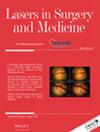Effects of Nonablative Er-YAG Laser on Human Endometrial Stromal Cells (hESCs): A Pilot Study
Abstract
Objectives
To investigate the thermo-chemical effects of nonablative Er:YAG laser on human endometrial stromal cells (hESCs).
Materials and Methods
In this laboratory based study, for the hESCs cultures, endometrial tissue biopsy samples were obtained from three fertile women in the late proliferative phase. In this laboratory-based study, seven experimental groups were created: Estradiol (E2) group, E2 + Sham (S) group, E2 + P4 group, E2 + Laser (L) group, E2 + P4 + L group, hESC group and hESC+L group. Cell cultures reaching confluence on the matrigel-coated petri dishes in all groups were incubated for 12, 24, 48, and 72 h after laser irradiation, respectively. Nonablative Er:YAG laser irradiation was performed to the hESCs culture. The main outcome of this study involves assessing the alterations in MMP-2, TNF-α, IL-6, VEGF-A, and IGFBP-1 levels within conditioned media of hESC cultures subsequent to the Er:YAG laser irradiation.
Results
Median MMP-2 levels significantly differed between groups at the 12th, 24th, 48th, and 72nd hour (p = 0.012, p = 0.045, p = 0.021, and p = 0.032, respectively). All media of hESCs irradiated with Er-YAG laser had higher median MMP-2 values. At the 48th hour, the groups showed significant differences in terms of median TNF-α levels (p = 0.029), which were lower in the groups that received Er-YAG laser. At the 12th hour, median IL-6 levels differed significantly between the groups (p = 0.011), being higher in the groups that received Er-YAG laser. At the 72nd hour, lower median VEGF-A values were observed for the groups that received Er-YAG laser (p = 0.021). A statistically significant difference existed in terms of median IGFBP-1 levels between the groups at the 24th hour, with higher levels in the groups which received Er-YAG laser (p = 0.041).
Conclusion
Our findings demonstrated that the non-ablative Er-YAG laser induces tissue remodeling, modulates immune responses by favoring Th2 cell activity and suppresses Th1 cell activity in hESCs. Additionally, it exerts favorable impact on decidualization.


 求助内容:
求助内容: 应助结果提醒方式:
应助结果提醒方式:


